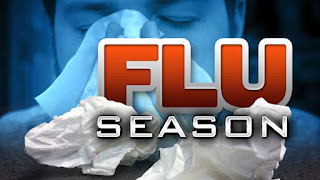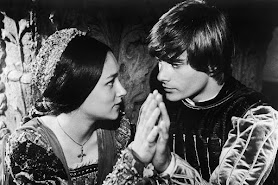FLU SEASON - a pandemic novel, part 5
For years I've been teasing fellow writers with my plan to write "YA erotica" which on its face seemed to be a misnomer. How could I dare write about young people engaged in the wild throes of lust? Or, more realistically, how could I not?
It's all in the details. How much to tell - or, as we say in the industry, how much to show. While many novels include romantic relationships, some also depicting sexual encounters, the line between "ordinary" love and affection and true erotica has been a matter of explicitness. How graphic are descriptions? Are we reading a nuts and bolts level of instruction? Is flowery, poetic language used - which may soften the otherwise rough exhortations? Where is the focus and, indeed, the intent of the writing? Is it to further the plot and character development or simply to titillate the reader? These are questions which define whether the writing is mainstream fiction or the genre of erotica.
In my first published novel, AFTER ILIUM, a young college graduate meets an older woman on a post-graduation trip to the ruins of ancient Troy (also known as Ilium). It features quite romantic descriptions which, seen through his inexperienced eyes, are ridiculously written in lusty metaphors. Yet the scenes could easily be considered erotica. It was my first intentional writing deemed erotic. However, both were adults at the time of publication.
I've had love scenes in every one of my novels, some more than others, because expressing love and making love is a natural activity for humans. It must be part of the plot, but fit plausibly with the character's normal behavior within the framework of the story. A character may change, of course, and acting lustful or becoming less interested is also part of a normal character arc. But the actual descriptions in the scenes remains the issue: how much to show or how far to go?
I was too young to see that film when it came out, given its rating, but seeing it later, as a youngish curmudgeon, I thoroughly enjoyed the depiction of young love. Only after a few decades did I realize that what "got to me" was the sense of memory the film brought out in me: the flashes of love I recalled feeling at this or that moment in my youth. Having always been a Romantic, I was more interested in a love-interest than merely a sex session - but that's a discussion for another time, likely in my therapist's office. A stream of "young sex" films shot forth during the '70s, culminating in the borderline kinky Blue Lagoon.
In writing my forthcoming novel, FLU SEASON, I willingly took myself back to that fateful time in junior high school when I had my first "crush". It was magical, to say the least. At the end of the school year, the whole class (a small school) had a field day at the local lake, and we suddenly found ourselves walking hand in hand down the tree-shaded trail...but with her jealous gal pal following us so we couldn't have a moment to ourselves. But when she got fed up with her friend not giving her any attention, she stormed off and we finally had a moment for that glorious first awkward kiss. But I digress....
In short, we were all young once, and in love for the first time, and that experience, good or not so good, sticks with us. If we have pushed it back out of the way, closing the door to that room, as it were, then the right story or a movie may unlock that door and there we are: back in that flash of feelings that once overwhelmed us. That is the beauty of youth, of first encounters, of that frozen moment in time which is not naughty or vulgar but a confirmation of our existence and our ability to love beyond ourselves. It is a necessity in our development. Without certain milestones in our development, according to psychologist Erik Erikson, we do not develop normally.
So I finally did it! My forthcoming "pandemic" novel FLU SEASON features what I think is a nifty teen romance - what could be called YA erotica. In my defense, I believe I've balanced quite well walking the tightrope between a believable encounter between two young people and what may make readers uncomfortable. The narrator of the story is a just-turned nineteen year old son of the main character ("Mom") who meets his 16 going on 17 year old cousin and falls instantly in love. But, fleeing the chaos of a city ravaged by pandemic, times are hard, and hard decisions need to be made, as his 30-ish single Mom keeps reminding him, the product of young love himself. As the story of fleeing danger and seeking sanctuary unfolds, the love story also unfolds, in a sweet way, then with more urgency, both characters recognizing their feelings for each other and eventually doing something about it, something which will change everything...and give us a trilogy rather than a stand-alone novel.
But enough spoilers. FLU SEASON: The Book of Mom comes out later this year. Cover reveal soon. Look for it on your favorite YA erotica shelf. And remember: nobody will know what you're reading; they will only see the cover, which suggests an apocalyptic sci-fi story, not the steamy exploration inside - or Mom's constant teasing of her son about needing to repopulate the world once the pandemic ends.
(C) Copyright 2010-2022 by Stephen M. Swartz. All Rights Reserved. No part of this blog, whether text or image, may be used without me giving you written permission, except for brief excerpts that are accompanied by a link to this entire blog.
Violators shall be written into novels as characters who are killed off. Serious violators shall be identified and dealt with according to the laws of the United States of America.




